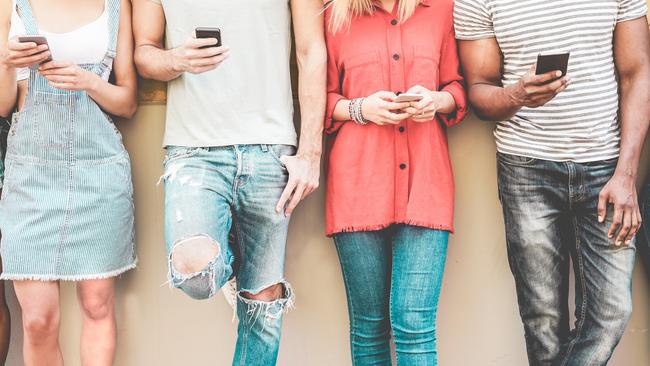There’s a lot to like about Instagram hiding likes
The influencers may be freaking out, but parents of teens can breathe a little easier after Instagram removed the like tally from posts. It will hopefully spell an end to the compare and despair game, writes Dannielle Miller.

Rendezview
Don't miss out on the headlines from Rendezview. Followed categories will be added to My News.
Addicted to comparing your Instagram likes to those of others you follow? Secretly validating your self worth against the number of hearts under your post?
Thanks to a trial that the social media superpower rolled out in Australia yesterday, it will now be harder to play that particular type of compare and despair game.
In response to increasing concerns over the impact social media is having on both self-esteem and bullying, hiding the number of likes an Instagram post receives from users is one of a number of modifications being made by the platform.
Also being trialled is a function where the company’s artificial intelligence asks users to pause and think before posting comments that may be unkind.
“Are you sure you want to post this?” it poses before you push post.

Are these changes timely or tokenistic?
For too long, the digital space has been something of a lawless frontier. Instagram’s indicates a willingness for at least one social media giant to listen to feedback and begin embedding user safety principles into their products, rather than merely reacting once users have experienced harm or risk.
The burden of safety shouldn’t fall back solely on the user.
MORE FROM DANNIELLE MILLER: Forget your spouse — it’s your teenager who needs the love
It’s important to note though that despite the popular rhetoric, the verdict is still out on whether social media does actually contribute to poor mental health (some of the factors that we know do affect mental health include genetics, illness, and experiences of abuse).
Studies repeatedly do show, however, that users of social media report feelings of isolation and loneliness when online. Seeing other people’s filtered highlight reels, or observing their pages flooded with likes while we only score a few, can certainly make us feel less worthy at vulnerable moments in our lives.
Yet under the new changes, those users who are feeling more fragile will still be able to see notifications indicating which of their followers has liked their post (the final tally of likes will just not be visible). If it’s validation they’ve been seeking from their screens, this will still be drip-fed to them.

All likes and engagement metrics will also still be available for businesses and creators.
Psychologist and school counsellor Jocelyn Brewer believes that shifting the focus from vanity metrics in the from of likes is valuable, particularly for young people, but cautions, “I wonder if digital behaviours will shift to simply providing more feedback in the form of emojis or comments as these will still be visible to other users. Will people then just move to manually counting comments?” If so, then Brewer argues this will lead to users spending more time on the platform, “From an algorithm perspective, this will be viewed by Instagram as a higher level of engagement.”
When it comes to how these changes may impact on our kids, we are right to be cautious. We mustn’t slip into a false sense of security or complacency. After all, Instagram is just one of the social media platforms young people engage with (and there’s a fair chance that we may not even be aware of all the various accounts they hold).
RELATED OPINION: Why are we so afraid to parent our own children?
We need to remain engaged in our children’s online lives, and to teach them what eSafety Commissioner Julie Inman Grant calls the four R’s of the digital age — respect, responsibility, reasoning and resilience.
And we should start having these important conversations with our children from an early age. Although social media platforms such as Instagram state the minimum age to sign up is 13 years, surveys have shown that three-quarters of children aged 10-12 years have ignored the age limit, many without any parental guidance or monitoring.

We must be mindful too that bullying does not just happen online. In fact, studies show that 75 per cent of bullying behaviours happen in real life.
No A.I. can stop snide comments in classrooms or name calling in the playground. There’s no technology that can stop bullies shoving others on the bus or prevent them from spreading rumours at netball training about a teammate.
There’s a lot to like about Instagram trialling these new features, but they are no magic wand solution to solving the feelings of isolation or insecurity some of us feel, or to creating more respectful social interactions.
Dannielle Miller is a parenting author, educator and CEO of Enlighten Education.
@MillerDannielle
Originally published as There’s a lot to like about Instagram hiding likes


